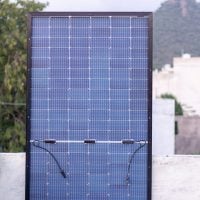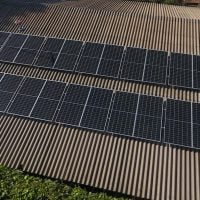Deadline: 02-Jul-21
The Department of State and Bureau of International Narcotics-Law Enforcement (INL) is seeking applications for a project to assess law enforcement and legislative approaches to counter illegal, unreported, and unregulated (IUU) fishing in the Western Hemisphere, particularly IUU fishing conducted by malign foreign actors.
- Objective 1: Research and map the scope of IUU fishing-related legislation in the Caribbean, Central America, and South America.
- Activity 1: Provide a chart with existing national legislation related to IUU fishing, to include how IUU fishing is defined in each country as well as jurisdictional and fishing management laws.
- Activity 2: Provide a chart with existing fishing access agreements between Caribbean, Central America, and South American countries and government-backed malign actors in the region.
- Activity 3: Provide a chart of country participation in existing international IUU fishingrelated treaties with an analysis, for States Parties and particularly government-backed malign actors, of compliance with these treaty obligations.
- Activity 4: Provide an analysis of the prosecutorial capacity to enforce prosecution of IUU fishing.
- Activity 5: Submit a publicly-releasable, comprehensive report that encompasses activities 1- 4.
- Activity 6: Host roundtables with key civil society, think tanks, academic stakeholders, and other appropriate entities in the region to brief and discuss project findings and results.
- Objective 2: Research and analyze the law enforcement (U.S. Coast Guard and Navy equivalent) capacity to address IUU fishing in the Caribbean and South America.
- Activity 1: Research and provide a chart of law enforcement surveillance capabilities and tools to detect IUU fishing vessels.
- Activity 2: Research and analyze law enforcement physical capacity to inspect vessels for IUU fishing activity.
- Activity 3: Submit a publicly-releasable, comprehensive report that encompasses activities 1- 2.
- Objective 3: Research and map the scope of crimes associated with IUU fishing activities.
- Activity 1: Provide a chart of organized crimes associated with IUU fishing activities (e.g. money laundering and human smuggling) and map the criminal networks participating in these activities.
- Activity 2: Analyze the estimated revenue generated from crimes associated with IUU fishing activities.
- Activity 3: Develop a publicly-releasable map of the impact of these crimes, including infographics and other social-media friendly graphics, including in Spanish.
- Activity 4: Submit a publicly-releasable, comprehensive report that encompasses activities 1-3.
- Activity 5: Host roundtables with key civil society, think tanks, academic stakeholders, and other appropriate entities in the region to brief and discuss project findings and results.
- Objective 4: Compile local anecdotes on the adverse impacts of IUU fishing that demonstrate the economic and environmental consequences of these activities from government-backed malign actors.
- Activity 1: Interview non-governmental organizations, government officials, and local fisherman to collect anecdotes on the adverse impacts of IUU fishing.
- Activity 2: Create infographics and other social-media graphics demonstrating the impact of IUU fishing these countries, including in Spanish.
- Activity 3: Submit a publicly-releasable comprehensive report that encompasses activities 1- 2.
- Activity 4: Host roundtables with key civil society, think tanks, academic stakeholders, and other appropriate entities stakeholders in the region to brief and discuss project findings and results.
- Total available funding: $300,000
- Award amounts: awards may range from a minimum of $300,000 to a maximum of $300,000
- Length of performance period: 12 months
- Number of awards anticipated: 1 award
- Anticipated program start date: August 2021
- Caribbean – Guyana, Jamaica, Suriname
- Central America – Costa Rica, Panama
- South America – Ecuador, Chile, Argentina, Uruguay
Participants and Audiences
The target audiences for this project include government stakeholders, civil society members, academia, think tanks, and the general public in Caribbean, Central American, and South American countries, U.S. government policymakers, and relevant international organizations.
Eligibility Criteria
The following organizations are eligible to apply:
- U.S.-based non-profit/non-governmental organizations (NGOs);
- U.S.-based educational institutions subject to section 501(c)(3) of the U.S. tax code;
- Foreign not-for-profits/non-governmental organizations (NGOs);
- Foreign-based educational institutions.
For more information, visit https://www.grants.gov/web/grants/view-opportunity.html?oppId=333285









































